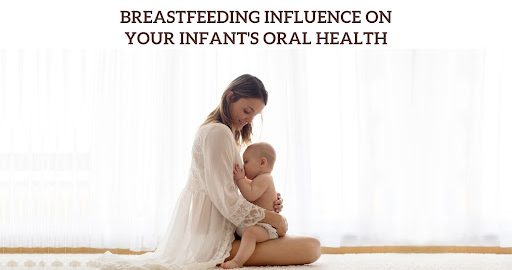
What is the Impact of Breastfeeding on Infant Oral Health?
Table of Contents:
- Introduction
- Benefits of Breastfeeding
- Challenges of Breastfeeding
- Practices for Maintaining Infant Oral Health
- Conclusion
Breastfeeding is widely recognized as the optimal feeding method for infants, providing numerous benefits for their overall health and development. Beyond its well-known advantages for the immune system, brain development, and bonding, breastfeeding can also play a significant role in the oral health of infants.
In this blog, we will delve into the impact of breastfeeding on infant oral health, exploring both the positive effects and potential challenges that can arise.
The Benefits of Breastfeeding for Oral Health
- Optimal Jaw Development: Breastfeeding requires a baby to latch onto the breast and actively use their jaw muscles to extract milk. This natural mechanism promotes proper jaw development, reducing the risk of malocclusions (misalignment of the teeth and jaw) later in life.
- Muscle Development: The sucking action during breastfeeding also strengthens the facial muscles, which is vital for proper speech and chewing function as the child grows.
- Nutrient Composition: Breast milk contains essential nutrients, including calcium and phosphorus, which are crucial for the formation of healthy teeth and bones. These nutrients contribute to the development of strong enamel and overall oral health.
- Antibacterial Properties: Breast milk has natural antimicrobial properties, helping to protect the infant’s mouth from harmful bacteria and infections.
Potential Challenges of Breastfeeding on Infant Oral Health
- Early Childhood Caries (ECC): Despite its many benefits, prolonged and frequent breastfeeding can lead to a condition known as Early Childhood Caries or baby bottle tooth decay. This occurs when breast milk or other sugary liquids (e.g., formula, fruit juice) remain in contact with the teeth for extended periods, leading to tooth decay.
- Incorrect Latch: An improper latch during breastfeeding can cause pain and discomfort for both the mother and the baby. Additionally, it may hinder the baby’s ability to extract milk efficiently, leading to insufficient nutrient intake and potential oral health problems.
- Nipple Confusion: Introducing bottles or pacifiers too early can lead to nipple confusion, making it difficult for the baby to latch properly during breastfeeding, which can affect oral development.
Best Practices for Maintaining Infant Oral Health during Breastfeeding
- Establish a Proper Latch: Seek assistance from a lactation consultant or healthcare provider to ensure a proper latch during breastfeeding. This will facilitate adequate milk intake and reduce the risk of oral health issues.
- Clean the Baby’s Mouth: After each feeding, wipe the baby’s gums with a clean, damp cloth or a soft infant toothbrush. This practice helps remove any residual milk or debris from the mouth, maintaining oral hygiene from an early age.
- Avoid Prolonged On-Demand Nursing at Night: Limit prolonged on-demand nursing during the night to reduce the risk of ECC. This will also encourage the baby to learn to swallow rather than fall asleep with milk pooling in their mouth.
- Limit Sugary Liquids: Avoid giving sugary liquids (e.g., fruit juice, sweetened water) to infants, as they can contribute to tooth decay. If necessary, use a cup rather than a bottle to transition to independent drinking.
Conclusion
Breastfeeding is undoubtedly a wonderful and natural way to nourish and bond with your baby, offering numerous benefits for both physical and emotional well-being. When practiced correctly, breastfeeding can positively impact an infant’s oral health by promoting proper jaw development, muscle strength, and nutrient intake.
However, it is essential to be aware of potential challenges such as Early Childhood Caries and ensure that best practices are followed to maintain optimal oral health during the breastfeeding journey. As always, consulting with healthcare professionals and pediatric dentists can provide valuable guidance on how to strike the right balance for your child’s oral health while embracing the many advantages of breastfeeding.
DISCLAIMER:Please note that the prices mentioned on this page: (a) present a range (depending upon the severity of the dental condition, the technology used in treatment, type of dental products used, etc.); (b) are true as on the date of this page and may change on a later date, in accordance with the standard company policy; (c) may be subject to standard aberrations or generalizations on account of the use of AI in general Google/internet search by you.Leave a Reply
Leave a Reply
Explore More Similar Posts
Explore More Blogs


Leave a Reply